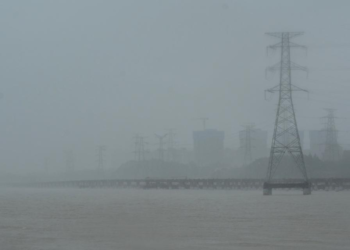The 21st century is witnessing emerging battle stations; the defence capacities are now extending their horizons from the myriad of services. States with capabilities are now operating in space and cyberspace, making them respective pillars of security. While other military domains have checks on them, such as boundaries, rules of engagement, and laws of regulation, these not so nuanced domains give carte blanche to the states to operate with no defined boundaries and rules of engagement. Similarly, cyberspace which has been categorized as a battleground for the 21st century, has no clear distinctive actions. Anonymity, stealth and digital confrontation become the critical features of states subduing the other.
Technology is an unlimited space to operate, which makes cyberspace also a battleground with an uncountable number of opportunities to operate. With more tech evolution, the number of possibilities increases without absolute parameters. One can assess the damage it can cause because, in 2010, the US-Israeli malware Stuxnet Worm targeted and infiltrated 15 Iranian nuclear plants. The Stuxnet virus breached the nuclear complex and caused real-world damage to the centrifuges. As per BBC, the Stuxnet worm destroyed 984 uranium enrichment centrifuges, resulting in a 30% decrease in Iran’s uranium enrichment efficiency. Several countries have increased their security protocols to safeguard infrastructure against the threat of Stuxnet-like attacks, as there are numerous vulnerabilities in Industrial Control Systems.
In the last several years, Chinese internet Security firm 360 detected at least 40 high-level international hacker groups and over 2,700 advanced cyberattacks against China, according to the company’s 2020 report. Previously, the 360-security firm found a decade-long sequence of attacks by a hacking operation associated with the CIA targeting China’s aircraft, scientific research facilities, petroleum industry, and large-scale internet corporations.
Washington, that often has claimed to be victim of cyberattacks, but not realizing that on many levels, it is pursuing its national interests and sailing in the same waters. Evidence reveals that it has always been a frequent offender. The Snowden saga is one of the biggest blots on the US’s democracy and how the state was actively waging cyber warfare on its citizens. In 2013 he revealed classified files, which showed that NSA, western Telcom companies and five eyes were actively involved in running global surveillance programs on individuals’ privacy. The revelation was on one side was of shock, but at the same time, it was enough to realize the western ambitions on cybersecurity.
The Chinese authorities claim that their government cannot be held responsible since hacking is banned in China. They argue that charges of Chinese cyberattacks are concocted to delegitimize China.
It is known to the world now that the United States is in an open cold confrontation with China, and in order to pursue its political objective, it will go to lengths. Zhao Lijian, a Chinese foreign ministry spokesperson in July 2021, referring to the United States and its allies, stated, “Stop pouring dirty water,” adding that these cyberattacks’ claims are “borne out of nothing” and “solely serve the political purpose of smearing and suppressing [China].”
The big power competition is now heavily relying on technological advancements. Moreover, Beijing being one of the leading figures in this is the point of significant concern for Washington. It is not only looking to compete but sabotage Chinese structures as well. The cyber capabilities of China are a cause of concern for US national security. China already has more than one billion Internet users and has emerged as a cyber-superpower, progressively incorporating cyber capabilities into its defence apparatus. Beijing has the potential for global supremacy in cyberspace because of its accomplishments in artificial intelligence, machine learning, and cyber capabilities. As a result, the country is significantly exposed to cyber assaults or information operations, raising severe worries about its internal and external security.
This has caused strategic palpitation to the United States, and it is keenly looking to enhance its cyber capabilities.
Governments worldwide have tightened cybersecurity rules and regulations in response to cyber-security concerns. Over ninety countries have passed special legislation to protect cybersecurity. United States’ Cybersecurity Information Sharing Act (CISA 2015), the European Union’s Directive on Network and Information System Security (NIS Directive 2016), and Japan’s Cybersecurity Basic Act (2014) are few among the cybersecurity passed by countries worldwide.
The global political order has entered into a post-liberal world where international institutes and international regulations are not actively prohibiting states from forgoing their national interest. Likely, there would not be any unanimous arrangement on cyberspace as the big powers are fully exploiting it. Even if a debate comes, it would be swayed by global rivalries. At the same time, there are regional and joint comprehensive drafts and legislation overcoming the emerging cyber threats. There would be emerging joint fronts on this sphere of warfare as well. The recent Xi-Putin meeting enunciates that Moscow and Beijing will cooperate in all spheres. Both Russia and China can also work in cybersecurity together by drawing Joint Comprehensive Plan for Cybersecurity. It could include joint efforts to overcome emerging cyber threats from the west and a unanimous plan of action.




















